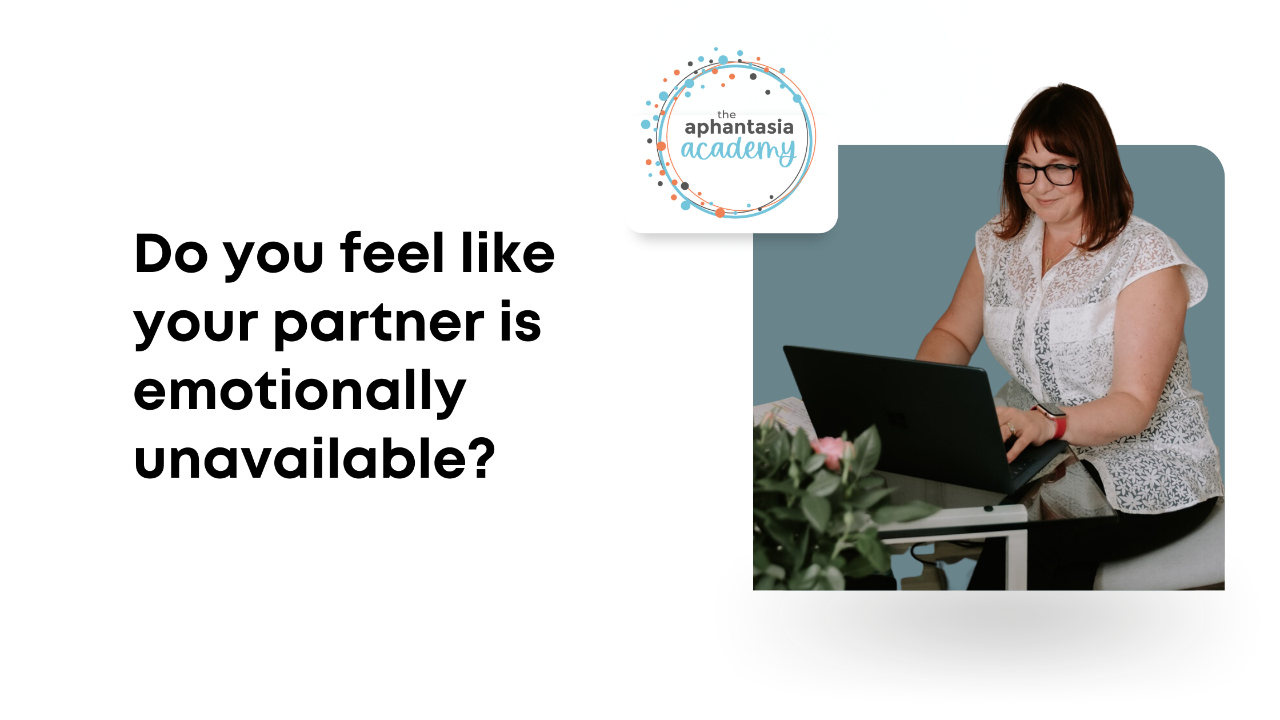Is your partner emotionally unavailable?
Nov 06, 2023
Is Your Partner Emotionally Unavailable?
Does your partner feel emotionally distant from you or they struggle to understand your emotions? Do they never seem to get quite as excited about things as you do, sometimes coming across as cold or unfeeling?
If they do, then you might be in a relationship with someone who has alexithymia.
Alexithymia is a Greek word which quite literally translates to “no words for emotions”. It's a personality trait that makes identifying and expressing emotions a challenge. It’s more common than you might think, affecting about 10% of the population.
This means that your partner may be experiencing the physical sensations of an emotion but not know what it is, or they may not even realise they are feeling something unless it’s an intense emotion.
Having alexithymia can also mean that your partner also doesn’t recognise when you’re experiencing an emotion, and that can be frustrating for both of you.
The Emotional Chasm
This emotional disconnect in a relationship can feel like a chasm, but understanding the role of alexithymia can be the bridge to a deeper connection. People with alexithymia may often appear cold, indifferent, or emotionally unavailable to their partner, creating a rift that if left to widen, can be hard to mend.
If your partner struggles to find the words to describe how they feel, that might make you feel that they aren’t as invested in the relationship as you are. That it doesn’t mean as much to them. And that can cause problems.
The reality is that they might not even be aware that they have an emotional blind spot. Recognising and understanding the impact of alexithymia on your relationship is the first step towards cultivating a richer emotional connection.
How do you know if they have it?
The first step is to encourage them to take an online test which will help to identify whether they have alexithymia or not. There are many different online tests and here is one of them https://www.alexithymia.us/test-alexithymia
Is there a cure for it?
Alexithymia isn’t a disease so it’s not something which needs to be cured. It is something which you and your partner can work on together to help them to increase their awareness of their emotions and to recognise yours. It takes work but it is possible for them to develop a greater understanding of the emotional world and, with practice, increase their ability to feel their feelings.
Here are some tips to support you both to do that.
- Open Communication: Create a safe space for expressing feelings and concerns. It’s essential for both partners to engage in honest and open communication, even when it’s challenging.
- Don’t take it personally: When someone has alexithymia it doesn’t mean that they don’t care, or that it’s your fault if they aren’t emotionally expressive. Recognising this will help you to manage how you feel about the situation, which will help them more in the long run.
- Patience and Understanding: Patience is a virtue, especially when working through emotional disconnects. Understand that progress takes time and effort from both sides.
- Educational Exploration: Dive into resources that help explain and explore emotions. Books, online courses, or even emotional coaching can be beneficial.
- Emotional Journaling: Encouraging your partner to journal their experiences can help in recognising and processing emotions.
- Seek Professional Guidance: Don’t shy away from seeking the support of a coach like me, who understands alexithymia and can provide tools and strategies to navigate through the emotional maze.
Coaching with me
As well as being an experienced coach, I’m also someone who has alexithymia. I understand the work your partner will need to do to develop their emotional connections. I also understand how communication plays a key role in you both to build those bridges to and share this emotional journey.
The journey to a fulfilling relationship, even in the face of alexithymia, begins with a single step—or in this case, a call. Ready to take that step? Book a call with me and discover how understanding and embracing emotions can redefine the rhythm of your relationship.


